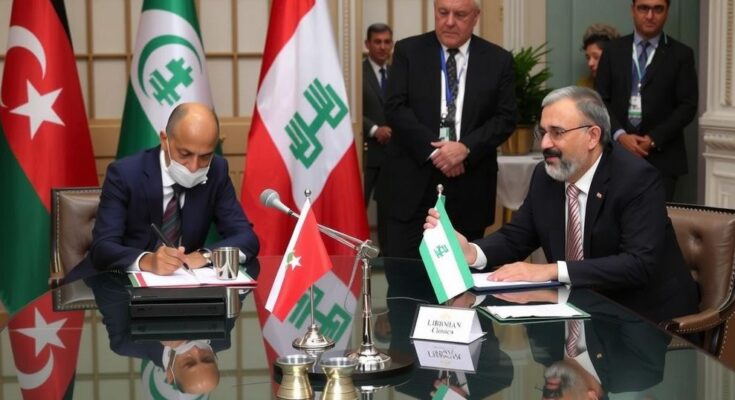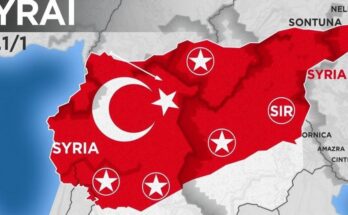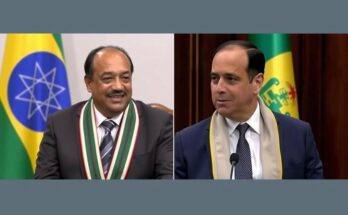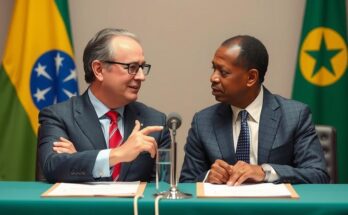A senior Libyan official met with Syria’s new leader to discuss diplomatic relations, energy cooperation, and migration issues, affirming support for Syria’s transitional efforts amidst rising regional diplomacy following Assad’s overthrow.
On Saturday, a senior official from Libya’s UN-recognized government, Minister of State for Communication and Political Affairs Walid Ellafi, engaged in discussions with Syria’s newly appointed leader, Ahmed al-Sharaa. The two officials addressed several critical issues including the enhancement of diplomatic relations, as well as cooperation in energy and migration management. Ellafi affirmed Libya’s steadfast support for Syria’s transitional phase and underscored the importance of security and military coordination between their nations.
During their meeting, they also highlighted the pressing matter of illegal immigration, particularly concerning Syrians who have sought refuge from the ongoing conflict since 2011 and often view Libya as a transit point to Europe. Ellafi articulated Libya’s desire for increased diplomatic representation, indicating that the charge d’affaires was present, with aspirations to establish a permanent ambassadorial position.
The political landscape in Libya remains fragmented, with power divided between the Tripoli-based UN-recognized government and a rival administration in the east led by military figure Khalifa Haftar. Following the fall of longtime dictator Moamer Kadhafi in 2012, Libya had not maintained a diplomatic presence in Syria until a mission was opened in Damascus in March 2020 by representatives of Haftar’s rival administration. Recent developments have seen Damascus’ new authorities welcome envoys from various countries as they seek to re-establish ties post-Assad’s overthrow.
The day of the meetings, Sharaa also hosted the chief of Bahrain’s strategic security bureau, Sheikh Ahmed bin Abdulaziz Al-Khalifa, though details regarding their conversation remain undisclosed. The diplomatic discourse surrounding Syria has grown more active, especially after calls were issued by leading Arab nations for a peaceful transition of power that would involve both the UN and the Arab League’s support.
This article encapsulates the diplomatic engagement between Libya and Syria amidst changing political dynamics in the region. Following the civil unrest in Syria since 2011, leaders from both nations have recognized the necessity of collaboration on critical issues such as migration and energy. Libya currently experiences a division of power, complicating its international relations. With Libya’s recent resumption of diplomatic ties with Syria after years of estrangement, this meeting signifies a potential shift toward greater political and economic collaboration, driven by shared interests in stability and regional security.
In conclusion, the meeting between Walid Ellafi and Ahmed al-Sharaa marks an important step toward strengthening diplomatic relations between Libya and Syria. Their discussions on energy cooperation, migration management, and the importance of maintaining a robust diplomatic presence indicate both countries’ commitment to addressing shared challenges. As Libya navigates its own political complexities, fostering collaboration with Syria could present opportunities for mutual support in the volatile landscape of the region.
Original Source: www.barrons.com




